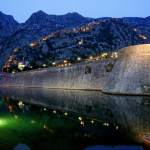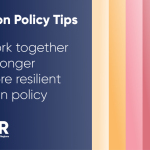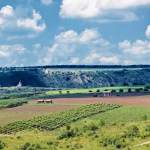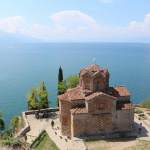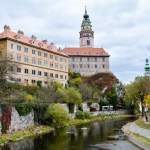Original publishing date - early 2017 Spain is a country of 504,645 square kilometres that shows important variation across regions in terms of economy, socio-political structure, language, culture and traditions. The Constitution of 1978, according to its redaction, was a compromise: it balanced the centralist institutions from the former regime (under Franco) and the … [Read more...]
We are a voice
AER represents its member regions, and stands for stronger cohesion between regions.
During the last Bureau Meeting, AER confirmed its will to help make Europe strong. We will be continuing to advocate for a stronger Europe, through stronger regions.
We are a voice for our members.
Regionalisation in Slovenia: regions may fill the gap between the central government and the local level #RoR2017
Slovenia has only one tier of sub-national government, i.e. municipalities. Currently, there are 212 municipalities. This means that there are no other tiers of government, like counties, regions etc. Some other forms of regional segmentation exist (voting, police, financial, statistical districts), but not in the form of sub-national government. Local government … [Read more...]
Regionalisation in Azerbaijan: a state within a state #RoR2017
The Republic of Azerbaijan is part of the Eastern Partnership, which is an initiative that enables closer political, economic and cultural relations among the EU, its member states and 6 eastern European partners. Azerbaijan belonged to the Russian Empire until World War I, during which period the Empire was dissolved. In 1918, Azerbaijan declared independence and established … [Read more...]
Regionalisation in Sweden: a strong local administration with a weaker regional level #RoR2017
Sweden is a unitary state with a strong central administration. There is an undisputed regional level in Sweden, the provinces (landskap), with which there is a regional identification, although they ceased to play a part in the administration of Sweden in 1634 with the introduction of the county (län). The county level has a clear role in the provision of health and welfare … [Read more...]
Regionalisation in Portugal: the need to reform the sub-national government #RoR2017
The transition from the authoritarian political regime to the II Republic, in 1974, marked a change in the national territory and in the nature of sub-national government in Portugal. During the period of the authoritarian regime (1926-1974), sub-national tiers of government were strictly controlled by central government. There was no direct and free election for the local … [Read more...]
Regionalisation in Norway: is the future of regions difficult to predict? #RoR2017
Norway is a constitutional monarchy with a written constitution and a parliamentary system where the Government (Regjering) is responsible to the parliament (Storting). The Norwegian unitary state is based upon a three-level model. The authority of the local and regional bodies is allocated from the national state according to the Local Government Act. Today Norway has 19 … [Read more...]
Regionalisation in Greece: are regions weak? #RoR2017
Regions were created in Greece in 1987 in order to respond to organisational and functional requirements of the EU structural policies. Greek regions were not the expression of historically rooted regional identities. Such identities are not particularly strong in Greece (with the exception of Crete), while all over the country local identities obviously overshadow the regional … [Read more...]
Regionalisation in Montenegro: not regions, but municipalities #RoR2017
An ancient Balkan state, Montenegro came under Ottoman control at the end of the 15th century, but became an independent kingdom from 1910 to 1918. Montenegro then joined the newly formed Kingdom of the Serbs, Croats, and Slovenes, which became the Kingdom of Yugoslavia in 1929. In 1991, 4 of the 6 Yugoslav republics declared independence, leaving Montenegro and Serbia to form … [Read more...]
#CohesionPolicyTips – Let’s work together for a stronger and more resilient cohesion policy
AER’s tips to influence: Towards a stronger and more effective Cohesion Policy beyond 2020 Over the last few weeks, we have offered small and big tips on how to approach and create a dialogue with your local and regional politicians to raise awareness on the needs of a strong more effective cohesion policy post-2020. Here are the tips! Sign the Cohesion Alliance … [Read more...]
Regionalisation in Lithuania: an ongoing debate on regional reforms #RoR2017
Essentially, the definition “region” in Lithuania is associated with three types of territorial units: administrative units of the state territory of higher level – counties (apskritys); ethnocultural regions; territorial units where Lithuania’s national regional policy and the European Union’s cohesion/neighbourhood policy are implemented. Counties After the re-establishment … [Read more...]
Regionalisation in Georgia: the politics of regional development are improving #RoR2017
Georgia is an independent, unified, and indivisible state, as confirmed by the referendum of 31 March 1991 - held throughout the territory of the country, including in the Autonomous Soviet Socialist Republic of Abkhazia and the Former Autonomous District of South Ossetia - and by the Act of Restoration of State Independence of Georgia of 9 April 1991. Territorial arrangement … [Read more...]
Regionalisation in Moldova: are regions lacking autonomy? #RoR2017
The Republic of Moldova is part of the Eastern Partnership, which is an initiative that enables closer political, economic and cultural relations among the EU, its member states and 6 eastern European partners. Moldova gained independence from the Soviet Union in 1991. The young republic later established itself as a “sovereign, independent, unitary and indivisible state” in … [Read more...]
Regionalisation in Ireland: is the state still the “gatekeeper” to EU? #RoR2017
When the Irish state was established, it inherited the British system of local government, which pre-dated the state’s birth. After independence, no constitutional provision was made for local government. A centralized system of governance The Irish state developed a highly centralized system of government. The Irish government’s desire for centralized power was, however, … [Read more...]
Regionalisation in Macedonia: no longer one of the most centralised countries in Europe #RoR2017
The former Yugoslav Republic of Macedonia (FYROM) was a constituent state of the Socialist Federal Republic of Yugoslavia until 1991. Despite experiencing considerable decentralisation in the Yugoslavian period, after independence the country increasingly centralised itself. As a result, in the Nineties, FYROM was regarded as one of the most centralized countries in Europe. The … [Read more...]
Regionalisation in Czech Republic: between independent and delegated competences #RoR2017
The Czech Republic is a country located in central Europe. It comprises the historical provinces of Bohemia and Moravia as well as the southern tip of Silesia, which are collectively often called the Czech Lands. At the end of the World War I, with the dissolution of the Austro-Hungarian Empire, the state of Czechoslovakia was established. The democratic and post-communist … [Read more...]
- « Previous Page
- 1
- …
- 3
- 4
- 5
- 6
- 7
- …
- 16
- Next Page »







